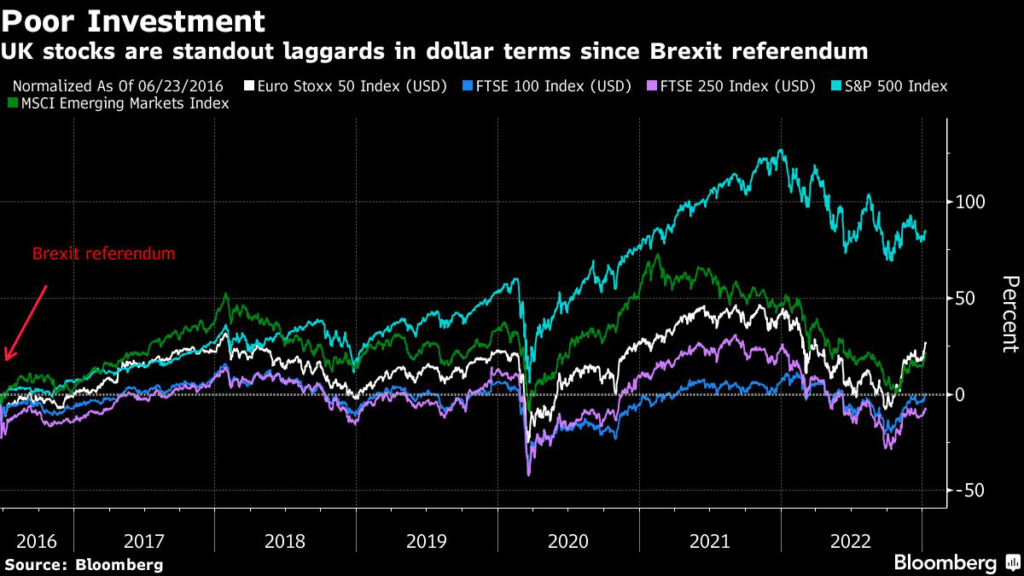Britain’s blue-chip stock index is trading near an all-time high in an optimistic start to 2023, adding to gains for a gauge that managed to avoid last year’s global selloff.
(Bloomberg) — Britain’s blue-chip stock index is trading near an all-time high in an optimistic start to 2023, adding to gains for a gauge that managed to avoid last year’s global selloff.
The FTSE 100 Index closed up 0.4% on Wednesday, taking its year-to-date rise to 3.7% and closing at the highest level since August 2018. The index is less than 2% from surpassing its record high hit that year. Global shares have been lifted by hopes that cooling inflation will encourage central banks to slow interest rate increases, while China’s reopening has boosted sentiment.
Though its gains this year have been smaller than that of the Stoxx Europe 600 — which has risen more than 5% — the UK benchmark is among the global outperformers of the past 12 months. The MSCI All-Country World Index slumped 20% last year in the worst performance since the 2008 crisis on concerns of a global recession, spurred by the soaring cost of everything from energy to food to mortgages.
The FTSE 100 also remains relatively cheap, trading at 10 times earnings expected a year from now, down from a 2020 high of 17 times. The MSCI All-Country World Index trades at 15 times forward earnings.
The gains have come despite the ongoing turbulence caused by a cost-of-living crisis, high inflation and a wave of industrial action that has crippled public services in the UK. The blue-chip gauge benefited from exposure to buoyant commodity prices, a strong US dollar and non-cyclical sectors like staple goods and health care as investors sought havens.
“Valuation should provide some resilience for UK shares in the face of likely disappointing macro and earnings per share newsflow in early 2023,” Berenberg strategists including Jonathan Stubbs wrote in a note. They expect “modest” returns of up to 5% for UK stocks this year.
Still, a strong 2022 has not fully compensated for the FTSE’s years as a laggard. In dollar terms, the benchmark is little-changed since 2016’s Brexit referendum. Stocks with greater exposure to the domestic economy remain in the doldrums. The FTSE 250 index — whose firms earn about half their sales in Britain — is down 15% over the past 12 months.
The biggest contributors to the FTSE 100’s rise in 2023 include banks like HSBC Holdings Plc and commodities firms such as Shell Plc. Elsewhere retailers appear to be turning a corner, lifted by strong performances by high street bellwether Next Plc and JD Sports Fashion Plc.
–With assistance from James Cone and Michael Msika.
(Updates market prices.)
More stories like this are available on bloomberg.com
©2023 Bloomberg L.P.










